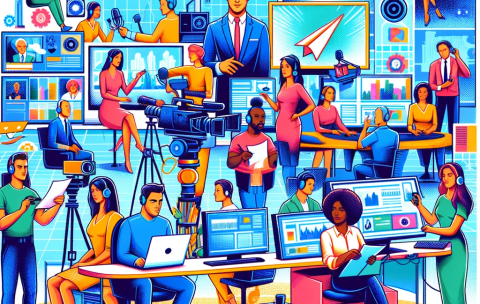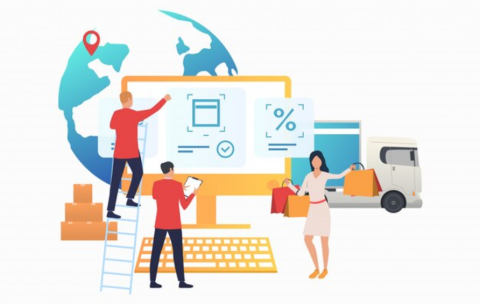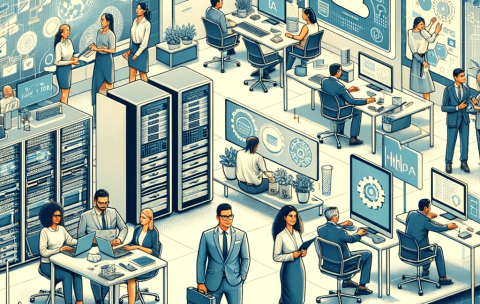Popular Instructors
All Tertiary Sector Courses
Service Marketing and Management
Service Marketing and Management is a specialized area focusing on …
What you'll learn
Week 1: Introduction to Service Marketing (4 Hours)
Session 1 (2 Hours): Understanding Services
Characteristics of Services
The Services Marketing Mix (7Ps)
Role of Services in the Economy
Session 2 (2 Hours): Consumer Behavior in Services
Customer Expectations and Perceptions
Customer Decision-Making Process
Customer Satisfaction and Loyalty in Services
Week 2: Service Marketing Strategies (6 Hours)
Session 3 (2 Hours): Service Positioning and Differentiation
Branding and Positioning Strategies
Creating a Unique Service Proposition
Service Design and Customer Experience
Session 4 (2 Hours): Service Pricing and Revenue Management
Pricing Strategies for Services
Value-Based Pricing
Revenue Management in the Hospitality Industry
Session 5 (2 Hours): Service Promotion and Communication
Integrated Marketing Communication
Digital Marketing for Services
Managing Online Reviews and Reputation
Week 3: Service Quality and Customer Experience (6 Hours)
Session 6 (2 Hours): Managing Service Quality
Measuring Service Quality (SERVQUAL)
Service Recovery and Handling Complaints
Quality Improvement Techniques
Session 7 (2 Hours): Customer Journey Mapping
Understanding the Customer Journey
Touchpoints and Customer Interactions
Enhancing Customer Experience
Session 8 (2 Hours): Service Innovation and Technology
Innovation in Service Delivery
Role of Technology in Enhancing Services
Case Studies of Innovative Service Businesses
Week 4: Service Operations and Management (4 Hours)
Session 9 (2 Hours): Service Blueprinting and Process Design
Service Blueprinting Techniques
Process Efficiency and Productivity
Managing Service Capacity
Session 10 (2 Hours): Capstone Project and Course Conclusion
Development of a Service Marketing Plan
Presentation of Marketing Strategies
Course Recap: Future Trends in Service Marketing and Career Opportunities
This course structure ensures that MBA students gain a solid foundation in service marketing and management, with a focus on practical skills that can be applied in service-oriented industries such as hospitality, healthcare, finance, and more. The capstone project allows students to apply their learning to a real-world service marketing challenge, preparing them for leadership roles in service-based businesses.
Customer Relationship Management and Engagement
Customer Relationship Management (CRM) and Engagement is a strategic approach …
What you'll learn
Week 1: Introduction to Customer Relationship Management (CRM) (4 Hours)
Session 1 (2 Hours): Understanding CRM Fundamentals
Definition and Importance of CRM
Evolution of CRM in the Digital Age
Key Concepts and Objectives of CRM
Session 2 (2 Hours): CRM Strategy Development
Creating a Customer-Centric Culture
CRM Strategy Formulation and Implementation
Aligning CRM with Business Goals
Week 2: Customer Data and Analytics (6 Hours)
Session 3 (2 Hours): Customer Data Management
Collecting and Organizing Customer Data
Data Privacy and Security in CRM
Customer Data Quality and Integration
Session 4 (2 Hours): Customer Analytics for Decision-Making
Using Data Analytics for Customer Insights
Predictive Analytics in CRM
Data-Driven Decision-Making in Marketing
Session 5 (2 Hours): Customer Segmentation and Targeting
Market Segmentation Strategies
Personalization and Targeted Marketing
Customer Lifetime Value (CLV) Analysis
Week 3: Building Customer Relationships (6 Hours)
Session 6 (2 Hours): Multi-Channel Engagement
Omni-Channel Marketing and Customer Experience
Social Media and Online Communities
Mobile Marketing and Apps
Session 7 (2 Hours): Customer Engagement Strategies
Building Customer Loyalty and Advocacy
Retention Strategies and Churn Prediction
Customer Feedback and Surveys
Session 8 (2 Hours): Handling Customer Complaints and Feedback
Complaint Resolution and Service Recovery
Customer Feedback Analysis
Turning Negative Feedback into Opportunities
Week 4: CRM Implementation and Measurement (4 Hours)
Session 9 (2 Hours): CRM Technology and Tools
CRM Software Selection and Implementation
CRM Integration with Other Systems
CRM Dashboard and Reporting
Session 10 (2 Hours): Capstone Project and Course Conclusion
Development and Presentation of a CRM Strategy and Implementation Plan
Peer Review and Feedback
Course Recap: Future Trends in CRM and Career Opportunities
This course structure ensures that MBA students gain a comprehensive understanding of customer relationship management and engagement, combining theoretical knowledge with practical exercises and a capstone project. Students will be well-prepared to lead CRM initiatives and drive customer engagement strategies in various industries.
Banking and Financial Services Management
Banking and Financial Services Management is a critical sector in …
What you'll learn
Week 1: Introduction to Banking and Financial Services (4 Hours)
Session 1 (2 Hours): Overview of the Banking and Financial Services Industry
Understanding the Global Banking Landscape
Key Components and Functions of Financial Services
Evolution of Banking and Financial Institutions
Session 2 (2 Hours): Regulatory Environment and Compliance
Overview of Banking Regulations and Compliance Requirements
Impact of Regulations on Banking Operations and Risk Management
International Banking Regulations and Compliance Challenges
Week 2: Strategic Management in Banking and Finance (6 Hours)
Session 3 (2 Hours): Risk Management in Financial Services
Fundamentals of Risk Management in Banking
Identifying and Managing Various Types of Risks (Credit, Market, Operational)
Tools and Techniques for Risk Assessment and Mitigation
Session 4 (2 Hours): Financial Analysis and Performance Management
Techniques for Financial Statement Analysis in Banks
Performance Metrics and Management in Financial Services
Balancing Profitability with Risk and Regulatory Compliance
Session 5 (2 Hours): Technology and Innovation in Financial Services
Impact of Digital Transformation in Banking
Fintech Innovations and Their Implications for Traditional Banking
Embracing Technology for Enhanced Customer Service and Operational Efficiency
Week 3: Advanced Topics in Banking and Financial Services (6 Hours)
Session 6 (2 Hours): Asset and Liability Management
Principles of Asset and Liability Management (ALM) in Banks
Strategies for Managing Liquidity and Interest Rate Risk
Balance Sheet Management in Financial Institutions
Session 7 (2 Hours): Investment Banking and Wealth Management
Overview of Investment Banking Services
Trends and Challenges in Wealth Management
Roles of Financial Advisors and Portfolio Managers
Session 8 (2 Hours): Global Banking and International Finance
Dynamics of International Banking and Finance
Managing Cross-Border Financial Operations
Understanding Global Financial Markets and Instruments
Week 4: Leadership and Ethical Considerations (4 Hours)
Session 9 (2 Hours): Leadership and Organizational Behavior in Financial Institutions
Leadership Styles and Skills for Banking Executives
Fostering Ethical Culture and Corporate Governance in Financial Institutions
Managing Change and Innovation in Banking Organizations
Session 10 (2 Hours): Capstone Project Presentations and Course Conclusion
Development and Presentation of Capstone Projects on Strategic Challenges in Banking and Financial Services
Peer Review and Feedback
Course Recap: Future Trends and Career Pathways in Banking and Financial Services
This course structure ensures MBA students gain a comprehensive understanding of banking and financial services management, combining theoretical knowledge with practical case studies, exercises, and a capstone project. The curriculum is designed to prepare students for leadership roles in banking and finance, emphasizing strategic management, risk assessment, regulatory compliance, and technological advancements in the industry.
Strategic Tourism and Hospitality Management
Strategic Tourism and Hospitality Management is a dynamic field focusing …
What you'll learn
Week 1: Fundamentals of Tourism and Hospitality Industry (4 Hours)
Session 1 (2 Hours): Introduction to Tourism and Hospitality Management
Overview of the Global Tourism and Hospitality Industry
Current Trends and Challenges in the Sector
Role of Strategic Management in Tourism and Hospitality
Session 2 (2 Hours): Sustainable Practices in Tourism and Hospitality
Principles of Sustainable Tourism and Hospitality
Implementing Eco-friendly and Responsible Practices
Case Studies on Sustainable Tourism Initiatives
Week 2: Strategic Planning and Operations (6 Hours)
Session 3 (2 Hours): Strategic Planning in Tourism and Hospitality
Developing and Implementing Effective Business Strategies
Market Analysis and Competitive Positioning
Scenario Planning and Future Forecasting
Session 4 (2 Hours): Operational Excellence in Hospitality
Optimizing Operations for Efficiency and Quality Service
Innovations in Service Delivery and Customer Experience
Managing Operational Challenges and Service Quality
Session 5 (2 Hours): Financial Management in Tourism and Hospitality
Financial Planning and Budgeting Strategies
Revenue Management and Pricing Techniques
Analyzing Financial Performance and Profitability
Week 3: Marketing and Customer Engagement (6 Hours)
Session 6 (2 Hours): Marketing Strategies in Tourism and Hospitality
Developing Effective Marketing and Branding Strategies
Digital Marketing and Social Media Engagement
Customer Relationship Management and Loyalty Programs
Session 7 (2 Hours): Human Resource Management and Leadership
Leading and Managing Teams in the Hospitality Sector
Staff Training, Development, and Motivation
Addressing Human Resource Challenges in Tourism and Hospitality
Session 8 (2 Hours): Technology and Innovation in Tourism and Hospitality
Leveraging Technology to Enhance Guest Experiences
Emerging Trends: Virtual Reality, AI, and Mobile Applications
Technology’s Impact on Operational Efficiency and Customer Service
Week 4: Global Perspectives and Capstone Project (4 Hours)
Session 9 (2 Hours): Global Trends and Cultural Sensitivity
Understanding the Impact of Globalization on Tourism and Hospitality
Cultural Sensitivity and Diversity in Service Delivery
Managing International Operations and Cross-Cultural Challenges
Session 10 (2 Hours): Capstone Project Presentations and Course Conclusion
Development and Presentation of Capstone Projects Addressing Strategic Challenges in Tourism and Hospitality
Peer Review and Feedback
Course Recap: Future Directions and Career Opportunities in the Industry
This course structure provides MBA students with a comprehensive overview of strategic tourism and hospitality management, combining theoretical lessons with case studies, practical exercises, and a capstone project. The curriculum is designed to prepare students for leadership roles in the tourism and hospitality industry, emphasizing strategic thinking, sustainability, and innovative approaches to management.
Innovative Logistics and Supply Chain Management
Innovative Logistics and Supply Chain Management is a critical area …
What you'll learn
Week 1: Foundations of Supply Chain and Logistics Management (4 Hours)
Session 1 (2 Hours): Introduction to Supply Chain Management
Overview of Supply Chain Concepts and Components
Evolution and Current Trends in Supply Chain Management
The Strategic Role of Supply Chain in Business
Session 2 (2 Hours): Fundamentals of Logistics Management
Basics of Logistics Operations and Management
Role of Logistics in Supply Chain Efficiency
Introduction to Transportation, Warehousing, and Distribution
Week 2: Strategic and Operational Excellence (6 Hours)
Session 3 (2 Hours): Supply Chain Strategy and Planning
Developing and Implementing Supply Chain Strategies
Aligning Supply Chain Strategies with Business Goals
Case Studies on Effective Supply Chain Planning
Session 4 (2 Hours): Inventory Management and Optimization
Techniques for Efficient Inventory Management
Balancing Cost and Service Levels in Inventory
Implementing JIT and Lean Inventory Practices
Session 5 (2 Hours): Procurement and Supplier Relationship Management
Strategic Sourcing and Procurement Processes
Building and Maintaining Effective Supplier Partnerships
Ethical Sourcing and Sustainable Procurement Practices
Week 3: Emerging Trends and Technologies (6 Hours)
Session 6 (2 Hours): Technology in Supply Chain and Logistics
Impact of Digital Transformation on Supply Chain
Role of AI, IoT, and Blockchain in Logistics
Exploring Future Technologies in Supply Chain Management
Session 7 (2 Hours): Global Supply Chain Management
Navigating the Complexities of Global Supply Chains
Strategies for Managing International Logistics and Compliance
Case Studies on Global Supply Chain Successes and Challenges
Session 8 (2 Hours): Risk Management in Supply Chain
Identifying and Managing Risks in the Supply Chain
Developing Resilient and Agile Supply Chains
Crisis Management and Contingency Planning
Week 4: Leadership and Integration (4 Hours)
Session 9 (2 Hours): Leadership and Change Management in Supply Chain
Developing Leadership Skills for Supply Chain Professionals
Leading Change and Innovation in Supply Chain Operations
Building High-Performing Supply Chain Teams
Session 10 (2 Hours): Capstone Project Presentations and Course Conclusion
Presentation of Capstone Projects Focusing on Innovative Solutions in Supply Chain Challenges
Group Critique and Feedback
Course Recap: Future Directions in Logistics and Supply Chain Management
This course structure offers MBA students an in-depth understanding of innovative logistics and supply chain management, combining lectures, case studies, practical exercises, and a capstone project. The curriculum prepares students for leadership roles in logistics and supply chain, emphasizing strategic management, operational efficiency, and innovative approaches to global supply chain challenges.
Advanced Retail Management and Strategy
Advanced Retail Management and Strategy encompasses sophisticated approaches to managing …
What you'll learn
Week 1: Foundations of Retail Management (4 Hours)
Session 1 (2 Hours): Overview of the Retail Industry
Understanding the Retail Landscape: Trends, Challenges, and Opportunities
Historical Evolution and Future Outlook of Retail
Key Players and Market Dynamics in the Retail Sector
Session 2 (2 Hours): Retail Strategy and Business Models
Developing Effective Retail Strategies
Analyzing Different Retail Business Models
Aligning Retail Strategy with Consumer Behavior and Market Needs
Week 2: Operational Excellence in Retail (6 Hours)
Session 3 (2 Hours): Retail Operations Management
Principles of Retail Operations
Inventory Management and Supply Chain Optimization
Store Layout, Design, and Visual Merchandising
Session 4 (2 Hours): Financial Management in Retail
Financial Planning and Analysis in Retail
Pricing Strategies and Profitability Management
Cost Control and Budgeting Techniques
Session 5 (2 Hours): Technology and Innovation in Retail
The Impact of Technology on Retail Operations
E-commerce Strategies and Omnichannel Retailing
Emerging Technologies in Retail (AI, VR, IoT)
Week 3: Advanced Retail Marketing and Consumer Insights (6 Hours)
Session 6 (2 Hours): Retail Marketing and Brand Management
Advanced Retail Marketing Strategies
Branding and Positioning in Retail
Customer Loyalty Programs and Relationship Management
Session 7 (2 Hours): Consumer Behavior and Analytics
Understanding Consumer Buying Behavior
Leveraging Data Analytics for Consumer Insights
Personalization and Customer Experience Management
Session 8 (2 Hours): Ethical and Sustainable Retailing
Ethical Considerations in Retail Management
Sustainability Practices in Retail Operations
Corporate Social Responsibility (CSR) in Retail
Week 4: Leadership and Strategic Challenges (4 Hours)
Session 9 (2 Hours): Leadership and Human Resource Management in Retail
Leading and Managing Retail Teams
Staff Training, Development, and Motivation
Dealing with Change and Crisis Management in Retail
Session 10 (2 Hours): Capstone Project Presentations and Course Conclusion
Development and Presentation of Capstone Projects on Retail Management Challenges
Peer Review and Feedback
Course Summary and Reflections on Future Trends in Retail Management
This course structure ensures MBA students gain a comprehensive understanding of advanced retail management and strategy, combining theoretical knowledge with case studies, practical exercises, and a capstone project. The curriculum prepares students for leadership roles in retail, emphasizing strategic planning, operational efficiency, and innovative marketing approaches.
Navigating Information Technology in the Tertiary Sector
This course aims to provide a foundational understanding of the …
What you'll learn
Define the concept of information technology in the tertiary sector.
Explore the diverse applications of IT in tertiary industries, including e-learning, telemedicine, and hospitality management.
Understand the impact of digital transformation on tertiary sector operations and services.
Analyze case studies showcasing successful IT implementations and innovations in the sector.
Examine the role of cybersecurity and data privacy in safeguarding tertiary sector information systems.
Discuss the ethical considerations and challenges related to IT in tertiary industries.
Evaluate the importance of IT infrastructure and digital literacy in tertiary sector organizations.
Explore emerging technologies and trends shaping the future of IT in the tertiary sector.
Formulate strategies for IT adoption and integration in tertiary institutions.
Gain insights into career opportunities and skill development in IT for tertiary industries.
Exploring Media and Communication in the Tertiary Sector
This course aims to provide a comprehensive understanding of media …
What you'll learn
Define the concept of media and communication in the tertiary sector.
Explore the diverse applications of media and communication in tertiary industries.
Understand the impact of digital technology and social media on communication strategies.
Analyze case studies showcasing effective media and communication practices in the tertiary sector.
Examine the role of branding and storytelling in enhancing the reputation of tertiary institutions.
Discuss the ethical considerations and challenges related to media and communication in this sector.
Evaluate the importance of stakeholder engagement and audience targeting.
Explore emerging trends and innovations in media and communication within the tertiary sector.
Formulate strategies for effective media planning and crisis communication.
Gain insights into career opportunities and skill development in tertiary sector communication.
- 1
- 2











